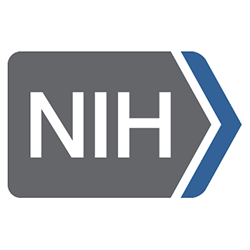The National Institute of Allergy and Infectious Diseases (NIAID), part of the National Institutes of Health (NIH), has announced the clinical investigators and institutions that will lead four NIH HIV clinical trials networks over the next seven years to conduct the innovative, efficient clinical research needed to accelerate progress against the HIV pandemic. NIAID also awarded grants to 35 U.S. and international institutions selected as HIV clinical trials units. NIAID and co-funding NIH Institutes intend to provide approximately $375.3 million in the first year to support the networks.
The process of refining the NIH HIV clinical trials networks began in 2017 and involved extensive consultations with researchers, clinicians, advocates, people with or at risk of HIV, and other stakeholders. The new, streamlined network structure will reduce administrative and oversight costs, allowing more funds to be allocated to clinical trials to advance four key areas of research emphasis: HIV prevention; HIV vaccines; HIV/AIDS adult therapeutics; and HIV/AIDS maternal, adolescent, and pediatric therapeutics. The networks also have the flexibility to leverage their infrastructure to rapidly respond to emerging infectious diseases, such as COVID-19.
The new structure includes one network that will focus on development of a safe, effective, and durable preventive HIV vaccine, and one that will work to advance an array of non-vaccine HIV prevention products and strategies to meet the needs and preferences of diverse populations worldwide. Two therapeutics networks will develop and evaluate potential new treatments and cure strategies for HIV and HIV-related complications and co-infections. One of these networks will focus on adults, while the other will focus on infants, children, adolescents, and pregnant and postpartum women. HIV prevention and vaccine research for the maternal, pediatric, and adolescent populations will be led by the HIV prevention and vaccine networks, with assistance from the therapeutics network focused on these populations.
The four networks will direct, coordinate, and conduct NIH-funded clinical research worldwide in close collaboration with one another, NIAID, other partner NIH Institutes and Centers, industry, and non-governmental research organizations. Each network is led by a leadership and operations center and includes a laboratory center and a statistical and data management center.
The 35 clinical trial units will provide scientific and administrative expertise, as well as the infrastructure to conduct clinical trials within the networks. A complete list of the units, including principal investigators and their affiliations, is available online. Each unit supports up to eight clinical research sites. Collectively, the units support 101 clinical research sites in 18 countries across North America, South America, Africa, and Asia. This includes 45 sites in the United States.
To learn more about these new awards and the process to refine NIH’s HIV clinical trials networks, see NIAID’s Refining the HIV Clinical Trials Enterprise website.
Edited by Gary Cramer



